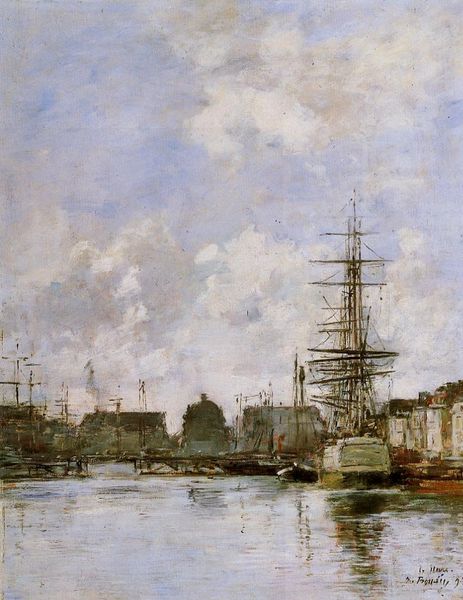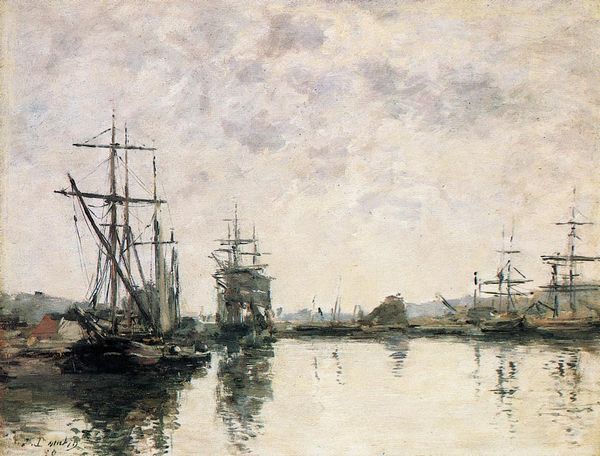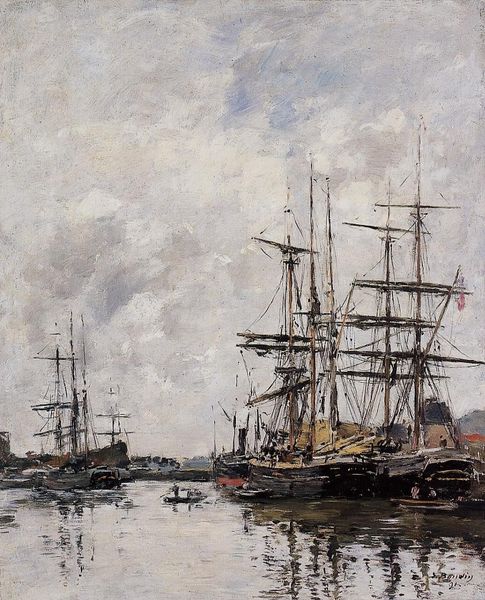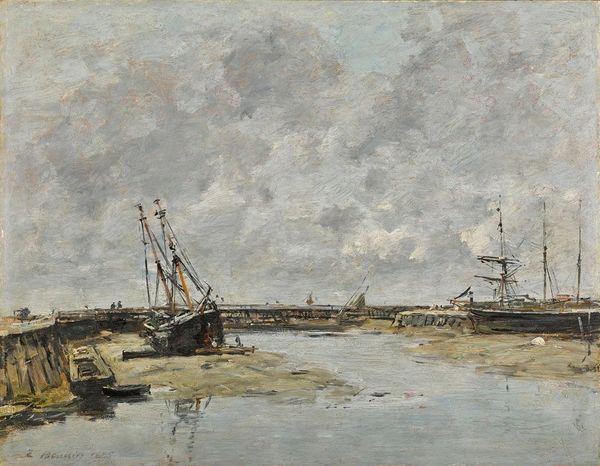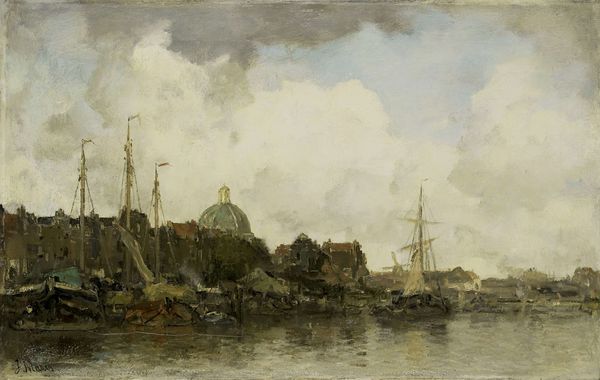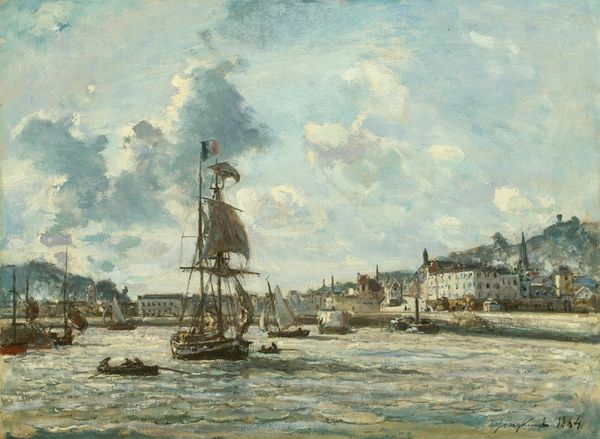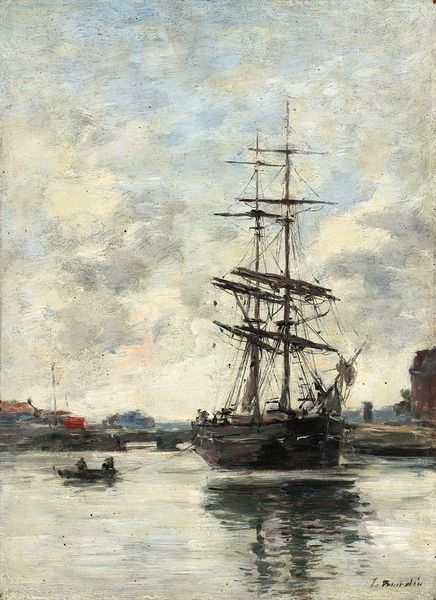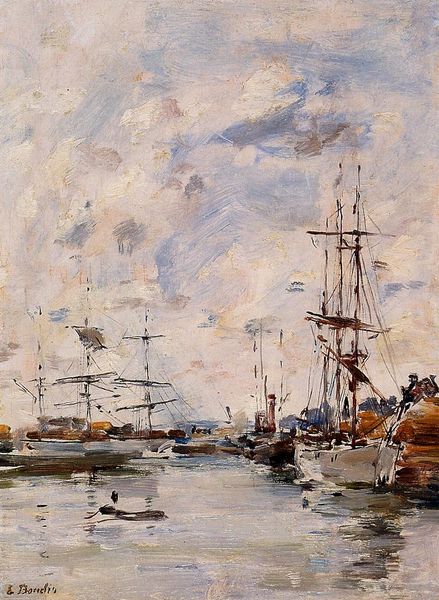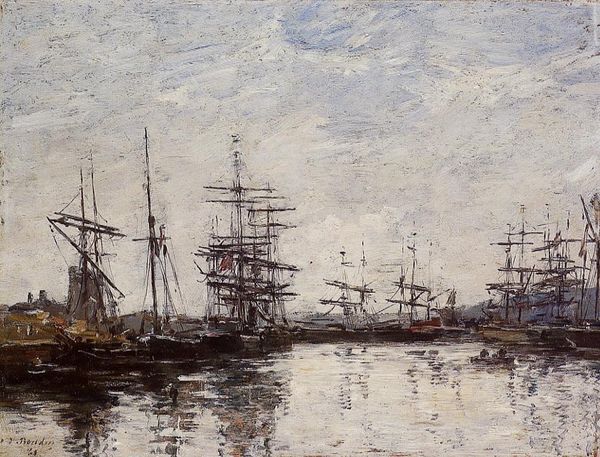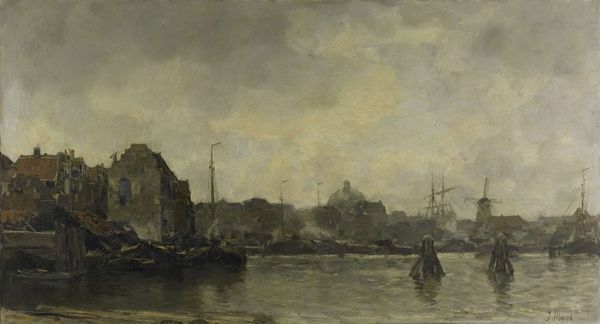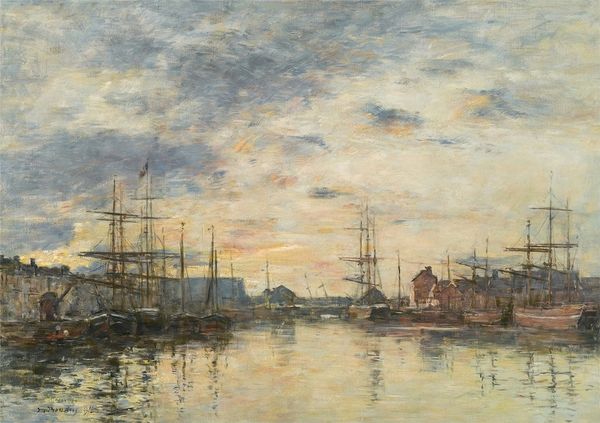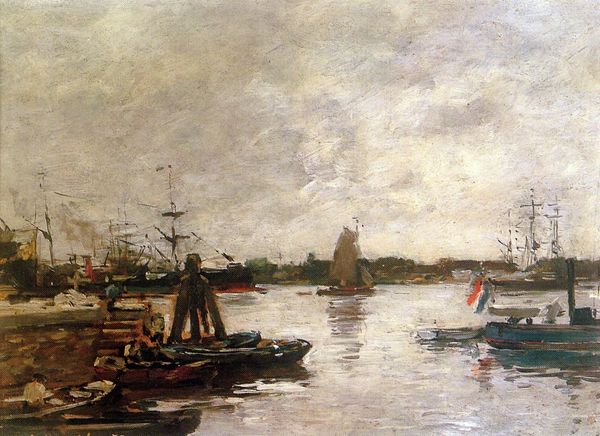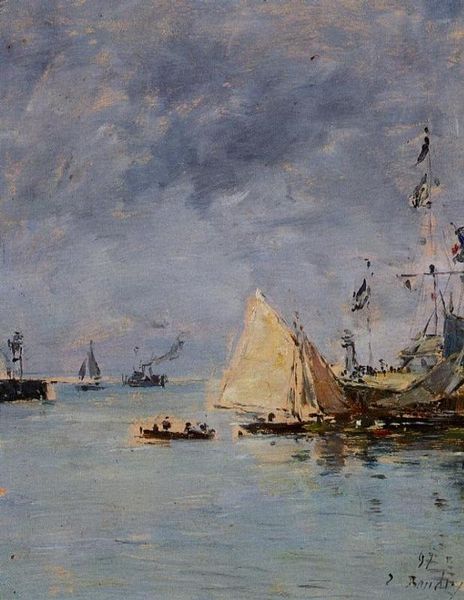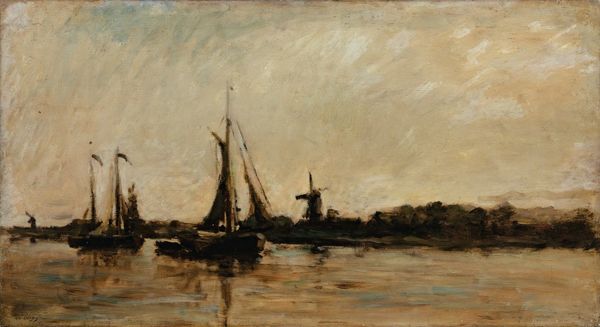
Copyright: Public domain
Editor: Eugène Boudin’s "The Port, Fecamp," from 1893, conjures such a misty, melancholic atmosphere using oil on what appears to be a rough canvas. The way the ships are rendered feels so immediate. What are your thoughts when you look at it? Curator: It speaks volumes about the changing face of maritime life and the port's place in it during that era. Boudin captures not just a physical space but also the social and economic currents flowing through it. This wasn't just a pretty picture, it was documenting a working environment, an industrial hub and public spectacle. Notice the way the light softens the industrial aspects. Editor: Yes, it’s almost romanticized, isn’t it? Was that a common approach for artists depicting industry at the time? Curator: Indeed. Many artists sought to legitimize these spaces, making them palatable to a middle-class audience increasingly removed from the realities of labor. But Boudin does not quite embrace the avant-garde rejection of academic values, he attempts to show the modernization of Fecamp harbor. He seems caught in between different value systems of academic display culture. Do you agree? Editor: I can see that, a push and pull between documenting and idealizing. What kind of cultural narrative do you think Boudin's paintings offered the rapidly changing world at that time? Curator: They served a complex role. They legitimized commercial activity by aligning the industrial sphere with accepted fine art practice, yet did not turn the harbor into a celebration of modernity as later avant-garde movements may have done. Boudin’s harbour is muted. The paintings walk the delicate line between historical document, idealized painting, and socio-political commentary. Editor: So, looking beyond just the aesthetic, the painting provides insight into the industrialisation of public life! Curator: Precisely. Boudin’s harbor highlights the artistic trends toward *plein air* production and Impressionism, without the explicit political critique later visible in Post-Impressionism. Editor: I will remember that!
Comments
No comments
Be the first to comment and join the conversation on the ultimate creative platform.
